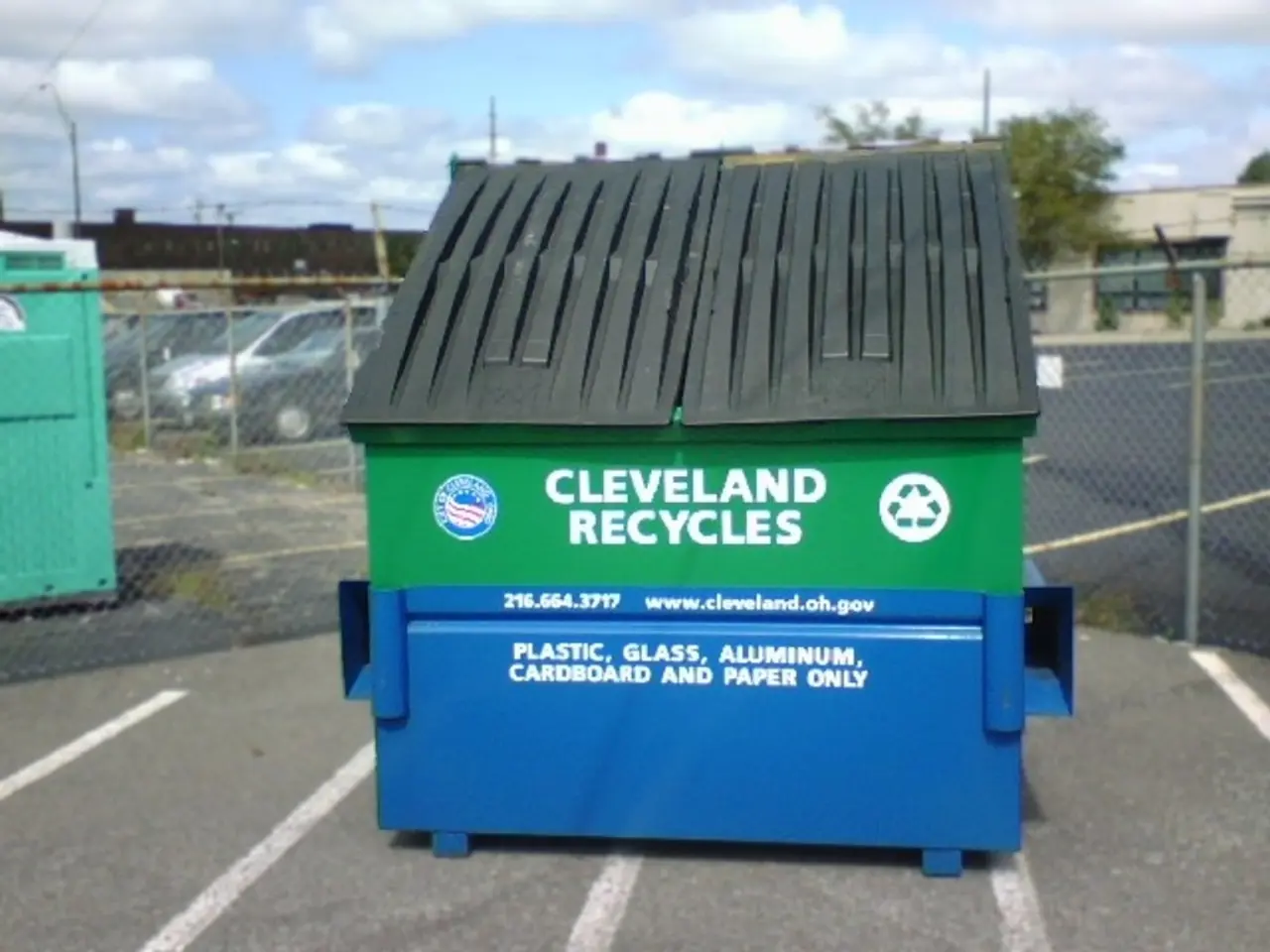UK reveals blueprint for initial waste-to-energy carbon capture trial
In a significant stride towards decarbonising the UK's waste management sector, Enfinium and Hitachi Zosen Inova have joined forces to launch a carbon capture pilot project at the Ferrybridge 1 energy-from-waste plant in West Yorkshire. This initiative marks a crucial step in the post-combustion carbon capture process, aiming to capture CO₂ emissions generated from waste incineration at the plant[1].
The project, scheduled to run for 12 months, is part of a broader European trend where carbon capture is becoming increasingly vital in waste-to-energy facilities. Several projects across the continent are aimed at capturing around 90% of CO₂ emissions, under various EU grants and initiatives[1].
Key aspects of the Ferrybridge project include:
- Location: Ferrybridge 1 energy-from-waste plant, West Yorkshire, UK.
- Technology: Post-combustion carbon capture, which captures CO₂ from the flue gases after the waste has been burned.
- Partners: Enfinium, a specialist in carbon capture and hydrogen technologies, and Hitachi Zosen Inova, a leader in energy-from-waste and EPC (engineering, procurement, and construction) projects.
Lord Dominic Johnson, minister for investment and regulatory reform, has welcomed the Enfinium project, describing it as "another win for our country and a huge step to enabling the decarbonisation of the UK’s unrecyclable waste." Johnson emphasised the government's efforts to attract green investment, creating jobs and opportunities across the country as it transitions to net zero[2].
Enfinium plans to invest £800m in installing carbon capture and storage (CCS) systems at both its Ferrybridge 1 and 2 energy-from-waste plants. The pilot carbon capture system is set to be installed at the UK energy-from-waste plant in July 2024[3].
The target capture of CO₂ from the facility is up to one tonne per day. With CCS installed, the two Ferrybridge projects could become one of the largest carbon removal projects in Europe, capable of capturing more than 1.2 million tonnes of CO₂ every year[4].
The National Grid has described carbon capture as "a way of reducing carbon emissions, which could be key to helping to tackle global warming." However, the specific carbon capture technology to be used in the Enfinium project remains undisclosed[5].
Enfinium's CEO, Mike Maudsley, stated that installing carbon capture technology on energy-from-waste facilities is the only way the UK can decarbonise its unrecyclable waste[6]. This project underscores the UK government's commitment to attracting green investment and moving towards a net-zero carbon future.
[1] Source: Enfinium Press Release [2] Source: BBC News [3] Source: Enfinium Press Release [4] Source: Enfinium Press Release [5] Source: National Grid Website [6] Source: Enfinium Press Release
- This cooperation between Enfinium and Hitachi Zosen Inova, as seen in the Ferrybridge 1 project, highlights the importance of environmental-science technology, such as carbon capture, in advancing health-and-wellness by promoting sustainable waste management and mitigating climate-change impacts.
- In the pursuit of decarbonizing the UK's waste management sector and achieving net-zero, science and technology, like carbon capture and hydrogen, play a significant role, as demonstrated by Enfinium's plans to invest £800m in CCS systems and the launch of the carbon capture pilot project.




